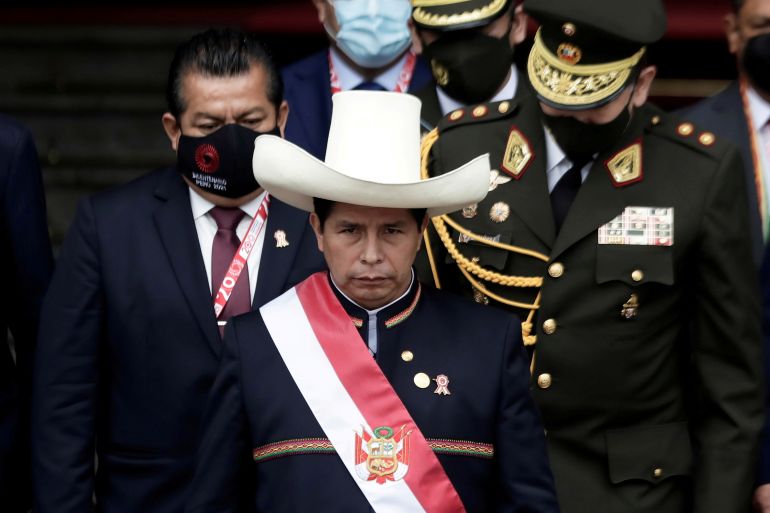Peru confirms new moderate-left cabinet
Political infighting within Pedro Castillo’s ruling Marxist party did not prevent Congress from approving a new moderate cabinet.

Peru has confirmed a new moderate-left cabinet, three months after President Pedro Castillo’s lineup led by the ruling communist party leader Guido Bellido crumbled amid political uncertainty.
The new cabinet formation approved on Thursday will be headed by Mirtha Vasquez, a moderate left-wing politician and former head of Congress. He does not belong to Castillo’s party, the Marxist-Leninist Peru Libre or Free Peru Party.
Keep reading
list of 3 itemsAs Peru opens from pandemic, nearly all schools remain closed
Peru: Castillo names new interior minister as cabinet vote looms
The vote was passed 68-56 by the opposition-controlled Congress, with one legislator abstaining. The reshuffle, widely seen as more moderate than Socialist Castillo’s original lineup, displeased some of his most left-wing allies.
Several members of Peru Libre voted to reject the new cabinet, including Castillo’s original Prime Minister Bellido, a longtime Peru Libre member.
The president had distanced himself from his Peru Libre party after some members accused him of becoming more right-wing and announced they would block the cabinet formation.
Earlier in the day, Castillo swore in the new Interior Minister, Avelino Guillen, who is known for having successfully prosecuted former President Alberto Fujimori. Fujimori is currently serving a prison sentence for human rights violations.
Guillen replaced Luis Barranzuela, a Peru Libre loyalist who resigned after media reports that he hosted a Halloween party amid the coronavirus pandemic. Barranzuela denied it was a party and said it was a work meeting.
A previous government list collapsed amid political instability and threats from former Prime Minister Bellido to nationalise the country’s natural gas sector. Under Peruvian law, the prime minister’s resignation automatically triggers the entire cabinet resignation.
Castillo made changes to his government after facing criticism that some of his ministers sympathised with Shining Path, a Maoist rebel group that an official Truth and Reconciliation report said was responsible for killing at least 28,000 people in Peru between 1980 and 2000.